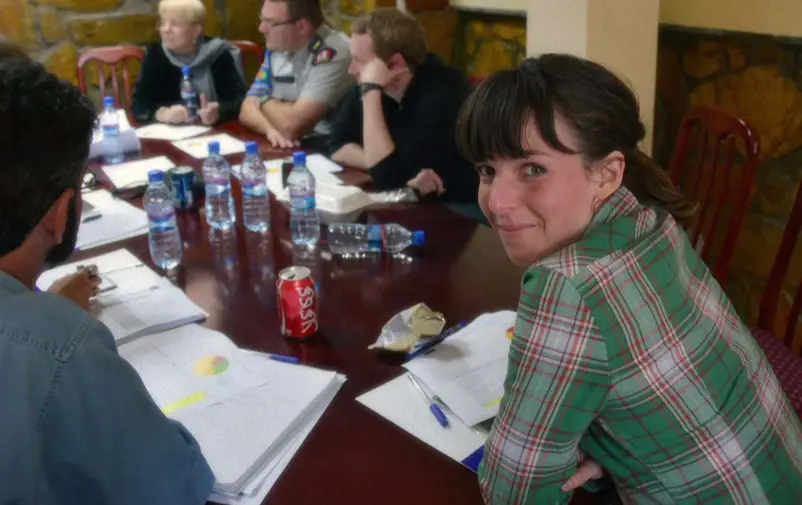
The 1325 Scholarship was established in memory of gender equality expert and peacebuilder Zaida Catalán.
All the parties to an international armed conflict must abide by international humanitarian law, which protects civilians from deliberate military attacks, violence, and other forms of abuse of human rights. International organizations, such as the UN and the OSCE have reported several violations of international humanitarian law in Ukraine, including attacks against civilians, enforced disappearance, and torture.
The OSCE Office for Democratic Institutions and Human Rights, ODIHR, has been carrying out research about the human rights situation in Ukraine remotely since the beginning of the war but is now deploying monitors on the ground, within a project called the Ukraine Monitoring Initiative.
Their task is to observe the security situation and conduct interviews with witnesses and survivors of human rights violations. The mission will prioritise urgent issues such as deliberate attacks against civilians, willful killings, the use of indiscriminate weapons, torture, and the use of sexual violence as a weapon.
One of the monitors that will be deployed is Andrew Gardner, Deputy Head of the Human Rights Department of ODIHR and project manager of the Ukraine Monitoring Initiative.
The team of which he is a part have recently been at the FBA’s training facility in Sandö in the municipality of Kramfors to participate in the course Hostile Environment Awareness Training (HEAT). The FBA decided earlier this year to offer places on the course to support the mission.
- Ukraine has a very serious human rights situation, with multiple violations of international humanitarian law. It is very important for ODIHR to be there on the ground, and to be there quickly, in this urgent situation. The FBA’s HEAT course is facilitating that for us. We will be deploying to the Kyiv region, which was occupied by Russian forces and where many violations have been reported. It's a difficult area to be in, with problems with mines, booby traps, and a host of other hazards that are associated with conflict, says Andrew Gardner.
The HEAT course is arranged regularly by FBA and is designed to prepare the personnel of civilian peace operations for risks that can arise in conflict areas.
– The training is mainly focused on events that are unlikely to occur but with potentially serious consequences. It includes kidnap survival, lethal attacks, first aid in hostile environments, but also convoy driving and mental preparation. During this particular course, we spent more time on training related to chemical and biological hazards, which is an imminent risk in Ukraine, says Peter Bülund, HEAT course director at FBA.
Andrew Gardner and the other monitors will travel to Ukraine sometime in the summer of 2022. Their observations will be analyzed in a final report aimed at helping efforts to ensure accountability for human rights violations in Ukraine.
MORE FROM HOME
Are you a young peacebuilder at the beginning of your career with a strong commitment to women, peace and security? Do you have experience working in this field in the Democratic Republic of Congo or Afghanistan and want to take your commitment to the next level? Then you have the opportunity to apply for the 1325 scholarship for 2026.
2025-11-06 15:30FBA has both increased and adapted its work in Ukraine in the wake of Russia's invasion.
FBA in UkraineKlara Grenhagen works as a specialist at FBA's Africa unit with a focus on dialogue, reconciliation and peace processes.
More about our expertsFBA is part of Sweden’s development aid within the area of peace and security
Read more about the countries where we work